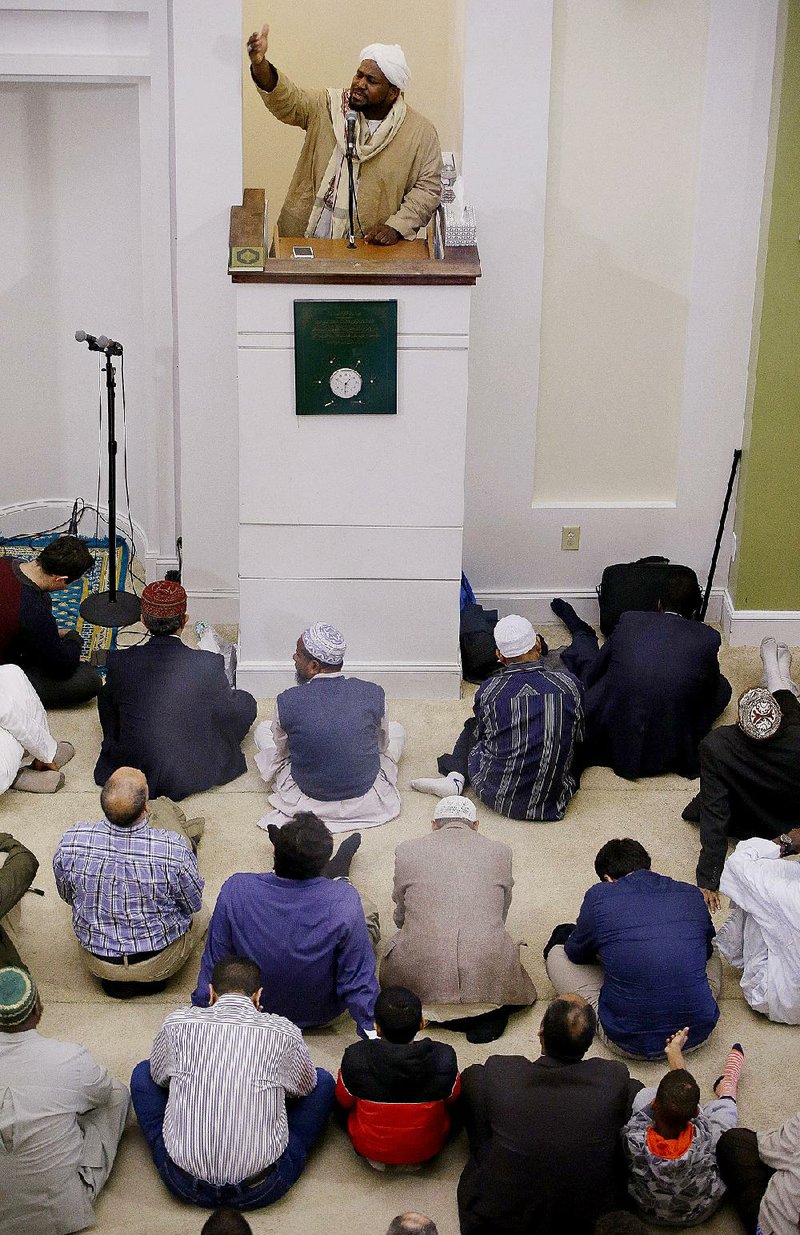BOSTON -- Boston's Muslim community has been once again thrust into the spotlight as the death-penalty trial of convicted marathon bomber Dzhokhar Tsarnaev nears its conclusion amid rising concerns of terrorist recruitment in America.
Newspaper op-eds, advertisements and social-media posts have highlighted connections between Boston-area mosques and terrorists and suspected terrorists, despite efforts locally to denounce them.
Tsarnaev, who grew up in nearby Cambridge, occasionally prayed at the neighborhood mosque with his now-dead older brother and accomplice, Tamerlan Tsarnaev.
Boston is also one of three cities -- along with Los Angeles and Minneapolis -- where President Barack Obama's administration is piloting a contentious new program to tackle extremist-group recruitment before it takes root.
Muslim worshippers expressed frustration last week that the local community continues to be painted with the same broad brush.
"Blaming an entire mosque just based on a couple of radical people that don't represent them really is unfair," said Rania Masri of Quincy, just before Friday's prayer service at the Islamic Society of Boston Cultural Center, a mosque in the city's Roxbury neighborhood. "This isn't a small, tightknit community. It represents so many different cultures and people from all around the world. The mosque, as an entity, can't represent all of them."
Local opponents and national pundits, though, continue to fault the broader community.
In February, Americans for Peace and Tolerance, a Boston-based nonprofit group, took out a large ad in The Washington Times featuring pictures of the Tsarnaev brothers and other terrorists or suspected terrorists with alleged ties to the Islamic Society of Boston and other area mosques.
The ad asked: "Why is Boston a hub for violent extremism?"
Earlier this month, the author and former Muslim Ayaan Hirsi Ali made similar connections in a Boston Globe op-ed.
In a statement, Americans for Peace and Tolerance said it is concerned that the Islamic Society of Boston's teachings are radicalizing Boston's historically moderate Muslim community.
"As our advertisement describes, over the past decade, 12 of the ISB's leaders or worshippers have been either killed, are in jail, or are fugitives because of their role in Islamic terrorist activity," the group said.
Maaria Assami of Burlington said churches and other religious institutions where other terrorists may have worshipped don't receive the same sort of scrutiny. "Islam has always been the cliche bad guy," she said. "So even if [Tsarnaev] had just passed by the mosque, it would have still been all our fault."
Local Muslim leaders acknowledge it's been challenging to fight back against detractors.
"We need to get better at becoming louder and saying 'Hey, that's not us.' We're your neighbors, your co-workers," Nichole Mossalam, of the Islamic Society of Boston's affiliated mosque in Cambridge, said recently.
The intense coverage of the Tsarnaev trial and the second anniversary of the April 15 attack, which killed three people and injured hundreds more, has provided an opportunity to reinforce that message.
Before Friday prayers, the Boston mosque held an open house with the theme Still Boston Strong. Some 50 officials representing the U.S. Department of Justice, the FBI, Boston Police, politicians, and other religious and civic groups attended.
"We just really wanted to open up the doors and showcase who we are and the spirit of Boston Strong that exists here in Boston and how we really have stuck together," said Yusufi Vali, the mosque's executive director.
Worshippers, a number of whom weren't aware of the open house, applauded the effort.
"People are afraid of the unknown, and the propaganda they get is all so negative," said Haseeb Hosein, of Boston. "If they would stop and look, we're just like Jews, Christian or any God-fearing people. We don't condone violence."
Most said anti-Muslim backlash has been minimal.
Christian and Jewish leaders have also come to the defense of the Islamic Society of Boston, which has borne the brunt of anti-Muslim scrutiny.
"This is a good, civic-minded community that's engaged in Boston," the Rev. Burns Stanfield, president of the Greater Boston Interfaith Organization, said at Friday's open house. "What's being spread is, frankly, just wrong."
A Section on 04/26/2015

